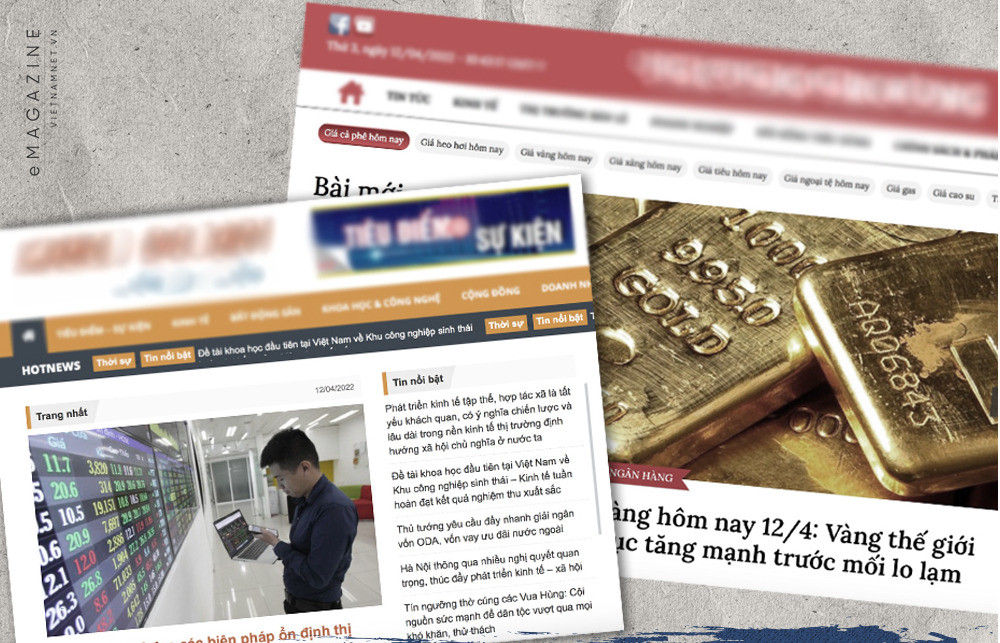
Since 2020, the Ministry of Information and Communications (MIC) has received complaints from localities that reporters of many magazines and news websites visit agencies, organizations, businesses and individuals to collect information and write articles about issues that are inconsistent with the principles and purposes of the press agencies.
They charge that some press agencies, mostly magazines belonging to social organizations and professional associations, act beyond their functions, tasks and rights, thus causing inconvenience to businesses and people.
Some reporters know unverified information about businesses and use the information to blackmail businesses, forcing the businesses to sign advertising contracts, or they clamor for money.
According to MIC, these actions violate professional ethics and are against the law, affecting the lawful operation of agencies, businesses and localities, seriously damaging the reputation of press agencies.
The phenomenon has existed for a long time, but has been seen more regularly recently.
This is attributed to a deterioration in ethics, loose management and the lack of education of the governing bodies and press agencies. Because of this, some reporters do not conduct professional activities, but just exploit their positions for profiteering. In many cases, leaders of press agencies ignore and tolerate these acts of harassment.
Harassment
In April 2021, S Company, the investor of a housing project in Hanoi, sent a petition to the Authority of Press, MIC, complaining that a magazine was harassing the company.
In early January 2021, a reporter contacted the company and asked to provide a lot of documents related to the project.
Later, the reporter wrote an article which did not truly reflect the opinions of the enterprises and did not conform to the principles and purposes of the magazine.
The reporter repeatedly urged the company to sign a communication contract between the company and the magazine.
In an effort to stop the harassment, MIC requested people’s committees of centrally run provinces and cities to provide information according to the regulations, principles and purposes of press agencies, ensuring the rights of press agencies to access information. Press agencies need to operate in accordance with the law and businesses have the right to refuse advertisement contracts if they detect signs of exploiting the positions of press agencies for profiteering.
At a seminar held recently, Le Quang Tu Do, Deputy Director of the Authority of Broadcasting and Electronic Information, said since MIC sent the dispatch to localities, the harassment has diminished.
An official of a department in Hanoi said previously that his agency was bothered all the time by magazines with “very strange names”.
The agency once met reporters and had to spend much time to receive and answer questions from the reporters. The magazines represented by the reporters were not related to health or aesthetics, but they raised questions related to state management over aesthetics activities.
Many units in the aesthetics industry were also harassed by newspapers and magazines which had spheres of operation unrelated to the issue.
According to the official, after MIC released the guidance, saying that the agency only needs to work with press agencies that operate exactly according to their principles and purposes as registered, the agency was less confused.
“Every time we receive requests for working sessions, we have to check if the working agenda suits the principles and purposes of the newspapers or magazines. In order to do that, we look up on the MIC’s website to find their spheres of operation,” he explained.
“If we find something unreasonable, we will not provide information,” he said.
According to the Hanoi Department of Information and Communications, since 2021, the agency has handled administrative violations of two specialized pages of e-newspapers and five e-magazines, for “not complying with the principles and purposes of press agencies, and publishing false information causing serious consequences”.
The total fine was VND327.5 million.
Xuan Bach